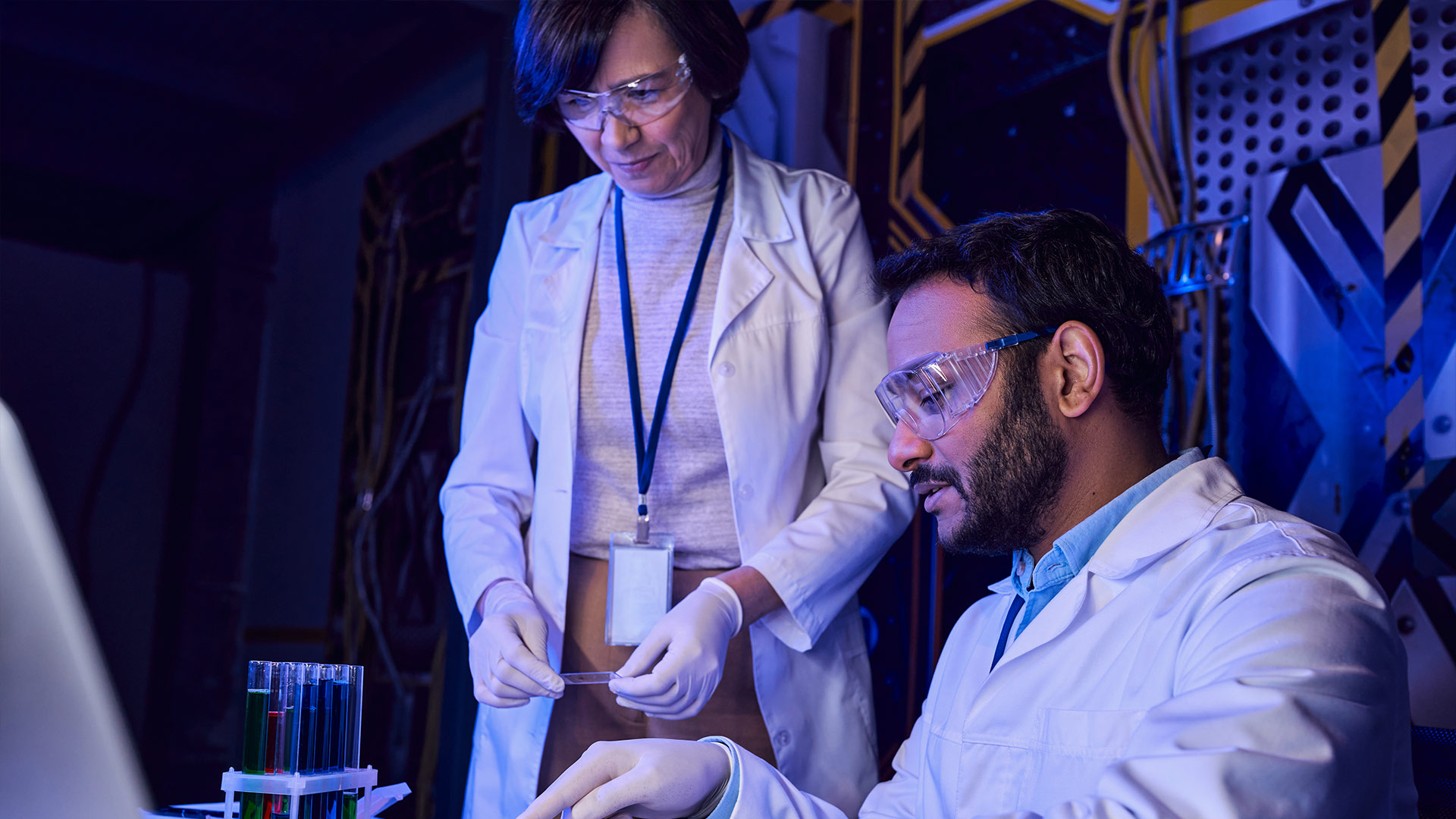The Impact of Nanotechnology on Skin Regeneration: What’s Next?
While we’re still in the early stages of nanotechnology in skincare, the potential it holds for improving our skin’s health, reducing signs of aging, and promoting regeneration is immense.

We’ve all heard about the groundbreaking advancements in technology, from AI to robotics, but one of the most exciting fields making waves in the beauty and skincare world is nanotechnology. Sounds futuristic, right? Well, it’s not just science fiction anymore – it’s happening now, and it’s revolutionizing the way we approach skin care and skin regeneration.
Nanotechnology, in the simplest terms, involves manipulating matter at the nanometer scale (that’s one-billionth of a meter, by the way). When applied to skincare, nanotechnology allows ingredients to penetrate the skin more effectively, target specific issues, and repair damage at a cellular level. This technology promises to take skin regeneration to a whole new level. But how exactly does it work, and what does the future hold for this exciting technology in anti-aging and skin care?
Let’s take a closer look at the impact of nanotechnology on skin regeneration and explore what’s next for this cutting-edge technology.
What Is Nanotechnology in Skincare?
Nanotechnology in skincare involves the use of tiny particles (nanoparticles) that are small enough to penetrate the outer layer of the skin and target deeper layers where traditional skincare ingredients may struggle to reach. These nanoparticles are designed to carry active ingredients – such as vitamins, antioxidants, peptides, and other powerful compounds – directly to the skin cells, allowing them to work more efficiently and deliver results faster.
Think of it like a delivery system for skincare ingredients. Instead of just sitting on the surface, these microscopic particles can travel deep within the skin and deliver nutrients exactly where they’re needed. This leads to more effective treatments for a wide range of skin concerns, from fine lines and wrinkles to acne scars and hyperpigmentation.
How Does Nanotechnology Benefit Skin Regeneration?
1. Enhanced Absorption of Active Ingredients
One of the biggest challenges with skincare is ensuring that the ingredients in your products actually make it past the outer layers of your skin and into the deeper dermis, where the magic happens. Traditional skincare products often struggle to penetrate the skin’s protective barrier, meaning the active ingredients can’t always reach their target.
Nanotechnology solves this problem by creating nanoparticles that are small enough to bypass the skin’s barrier and reach the deeper layers. This means that the beneficial ingredients in your skincare products, such as retinol, vitamin C, and hyaluronic acid, can penetrate deeper into the skin, where they can stimulate collagen production, improve hydration, and promote skin regeneration more effectively.
Real Example: Procter & Gamble has incorporated nanotechnology into some of their skincare lines, including Olay Regenerist, which uses nano-sized peptides to penetrate deeper into the skin and promote skin renewal. The results are visibly smoother, firmer skin with reduced signs of aging.
2. Targeting Specific Skin Concerns
Another major benefit of nanotechnology is its ability to target specific skin concerns with precision. Whether you’re dealing with fine lines, hyperpigmentation, acne scars, or sun damage, nanotechnology allows skincare products to deliver active ingredients directly to the area that needs treatment.
For example, nanocapsules can be created to encapsulate active ingredients and release them slowly over time, ensuring a steady supply of nutrients to the skin. This targeted approach can improve the efficacy of treatments and lead to faster, more noticeable results.
3. Accelerating Skin Healing and Regeneration
Nanotechnology isn’t just about improving the effectiveness of existing skincare ingredients – it can also help accelerate the skin’s natural healing and regeneration processes. Nanoparticles can promote cell turnover, stimulate collagen production, and reduce inflammation, all of which contribute to healthier, younger-looking skin.
This has huge potential for improving skin regeneration, especially for those dealing with post-inflammatory hyperpigmentation (such as dark spots from acne), scars, or signs of aging. By encouraging cell repair and regeneration at the deepest levels, nanotechnology helps your skin repair itself more efficiently, leading to faster recovery and more youthful skin.
4. Protection Against Environmental Damage
Our skin is constantly exposed to environmental stressors like pollution, UV radiation, and harsh weather conditions. These factors contribute to premature aging, causing oxidative stress and damaging skin cells over time. Nanotechnology can help protect the skin from this damage by creating nanoparticles that act as a barrier, preventing harmful particles from entering the skin and reducing oxidative stress.
Additionally, some nanomaterials are being developed with anti-inflammatory properties, which can help calm and soothe irritated skin. By providing a protective shield and helping the skin repair itself, nanotechnology can minimize the long-term damage caused by environmental factors.
Real Example: Nanoparticles of zinc oxide are used in many modern sunscreens. These nanoparticles provide superior sun protection by scattering and absorbing UV rays more effectively than traditional sunscreens. The smaller size allows the sunscreen to apply more smoothly and invisibly on the skin, without the thick, white residue that some sunscreens leave behind.
The Future of Nanotechnology in Skin Regeneration
As exciting as nanotechnology is right now, we’re only scratching the surface of its potential in skincare. Here are a few ways nanotechnology might evolve in the future to further enhance skin regeneration and anti-aging treatments:
1. Personalized Skincare with AI and Nanotechnology
Imagine a world where your skincare products are tailor-made for your unique skin needs, and these products adapt in real-time to changes in your skin. Thanks to advances in artificial intelligence (AI) and nanotechnology, this could become a reality. AI could analyze your skin type, monitor changes over time, and recommend skincare products with specific nanotechnology-based ingredients designed to target your personal skin concerns.
This personalized approach would make skincare more effective and efficient, as it would be able to address individual skin needs with greater precision. You wouldn’t need to guess which products work for you – your skincare routine would be tailored just for you.
2. Smarter Delivery Systems for Active Ingredients
In the future, we may see even smarter delivery systems that allow for the controlled release of active ingredients in skincare products. For instance, nanotechnology could enable ingredients to be released at different times throughout the day, providing continuous care for your skin. This would allow for more long-term benefits and better skin regeneration, as the skin would be consistently nourished with exactly what it needs.
3. Regenerative Skin Treatments for Deeper Healing
Nanotechnology could lead to the development of even more advanced regenerative treatments for skin that go beyond topical skincare. Researchers are exploring ways to use nanomaterials to accelerate the healing of deeper skin layers, stimulate hair growth, and even regenerate damaged tissue. This could lead to groundbreaking treatments for scars, burn victims, and other skin conditions that require significant repair.
Real Example: Researchers are already experimenting with nano-sized hydrogels for wound healing. These hydrogels can deliver drugs and promote tissue regeneration at the site of the injury, offering a more effective and less invasive alternative to traditional treatments.
Nanotechnology is changing the way we approach skin care and regeneration. By enabling deeper penetration of active ingredients, targeting specific skin concerns, and accelerating skin healing, nanotechnology is opening up new possibilities for anti-aging treatments. It’s a future where skincare is more personalized, more effective, and more powerful than ever before.
Are you ready for the future of skincare? Nanotechnology might just be the game-changer you’ve been waiting for.


